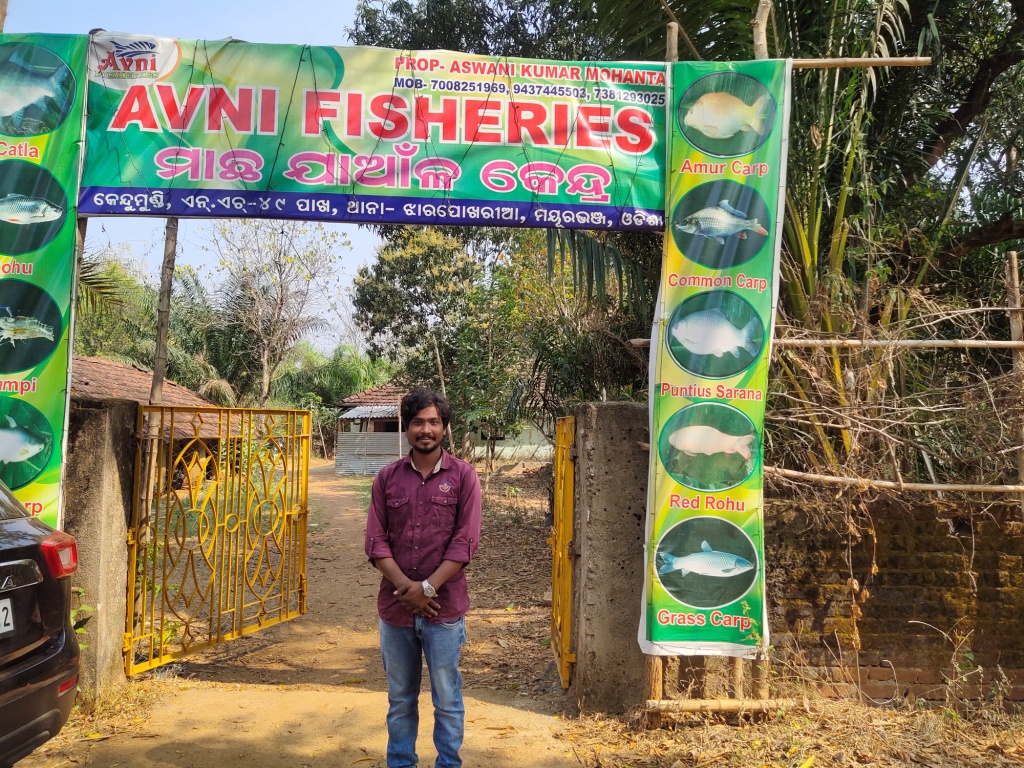Saraskana: After the outbreak of COVID-19 pandemic, thousands of youths lost their jobs and came to their villages in Mayurbhanj district. Many are still struggling to get foothold in various income-generating activities while others are still jobless.
But a young engineer of Saraskan area has scripted success in production of carp fry and fingerlings in his hatchery, which has made him self-sufficient. His story has shown others the way of income in the area.
Within a short period, Ashini Mohant, an electrical engineer, has carved out a niche as fish spawn farmer in the area.
Mohant is a native of Kendumundi under Umadeipur panchayat. After completing his electrical engineering, he served in different private companies for three years. But he was not happy with his jobs in companies.
He wanted to do something that can make him
self-sufficient. His father Ananta Prasad Mohant and his uncle Krushnachandra Mohant encouraged him to take up fish spawn farming, which hold much importance for fish farmers in the district and even neighbouring districts.
Then he took a 45-day training in fish fry farming at Kailash Fisheries, a Skill India project at Baisinga.
Then, he went to Inland Fisheries Research Centre at Barakpore in Kolkata for a seven-day training in fish spawn farming.
His own initiative started June 19, 2020. He took 10 acres of land on a lease basis and started Abani Fisheries in his village. He dug five ponds with modern techniques in place.
He grew fingerlings of a variety of fishes such as common carp, puntius saran, Red Rohu and Grass Carp.
His fish fingerlings have high demand among farmers in Saraskana, Bangiriposi, Kuliana, Baripada, Thakurmunda, Rairongpur and even Musabani (In Jharkhand)
“Farmers from these areas usually place orders at me for fingerlings. I have engaged three to four local youths to look after the farm,” he added.
Adopting modern methods, a farmer can make good profits from producing three to four tonnes of fish fingerlings twice a year from an acre of land, he noted.
“My aim is also to make youths self-sufficient in fish farming, apart from producing quality fingerlings. But one needs to work with perseverance, determination and dedication to get success,” he observed.
The government should come forward to help out the youths keen to take up this farming.
PNN
